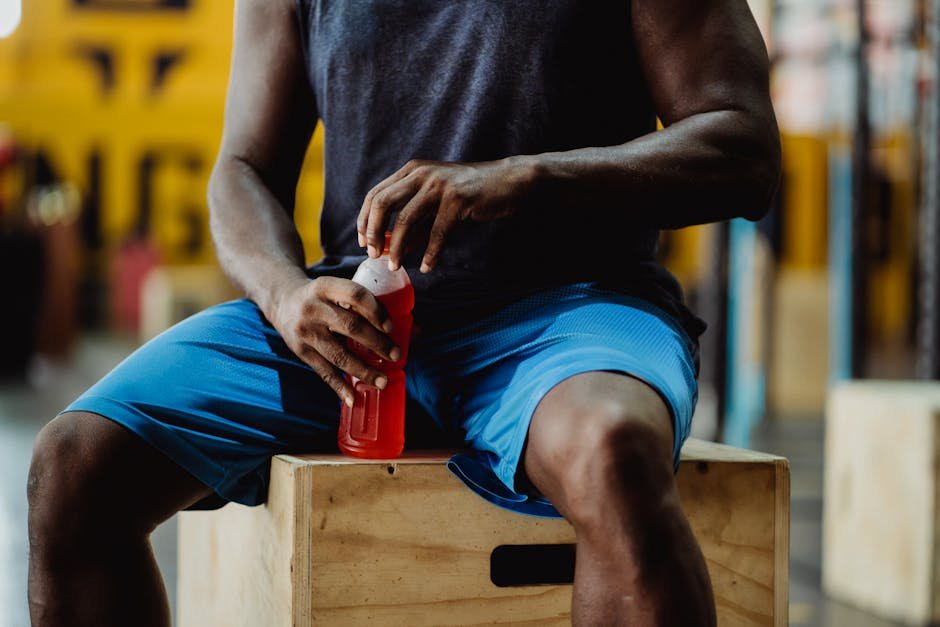Post-Workout Recovery Tips for Optimal Results
Whether you’re a seasoned athlete or a fitness newbie, understanding the importance of post-workout recovery is crucial for achieving your fitness goals. 💪 Recovery isn’t just about resting; it’s an integral part of your workout routine that ensures muscle growth, prevents injuries, and improves performance. In this guide, we’ll delve into effective post-workout recovery tips that will help you optimize your results.
Table of Contents
1. Why Post-Workout Recovery Matters
2. Hydration: The First Step to Recovery
3. Nutrition: Fuel Your Body Right
4. Stretching and Mobility Exercises
5. The Importance of Rest and Sleep
6. Active Recovery: Keep Moving
7. Mental Recovery: Don’t Overlook It
8. FAQs
9. Conclusion
Why Post-Workout Recovery Matters
Post-workout recovery is not just a fancy term in the fitness world; it’s a process that allows your body to repair and strengthen itself. During exercise, your muscles undergo stress and create tiny tears. Recovery is when these muscles heal and grow stronger. Skipping this phase can lead to overtraining, fatigue, and even injuries. 🏃♀️
Hydration: The First Step to Recovery
After a workout, your body is often dehydrated due to sweat loss. Replenishing fluids is essential for maintaining muscle function and reducing recovery time. Drinking water, or an electrolyte-rich beverage, can help restore hydration levels. Aim to drink about 16-24 ounces of fluid for every pound lost during exercise. 🥤
Nutrition: Fuel Your Body Right
Nutrition plays a pivotal role in recovery. Consuming a balanced meal or snack that includes protein and carbohydrates within 30 minutes to two hours after your workout can kickstart the recovery process. Proteins help repair muscle tissues, while carbs replenish glycogen stores. Consider options like a protein shake with a banana, or a chicken salad with quinoa. 🍽️
Stretching and Mobility Exercises
Post-workout stretching helps improve flexibility, increase blood flow to muscles, and reduce the risk of injury. Spend 5-10 minutes stretching major muscle groups after your workout. Incorporating foam rolling can also enhance mobility and alleviate muscle tightness. 🧘♂️
The Importance of Rest and Sleep
Rest and sleep are often underestimated but are vital components of recovery. During sleep, your body releases growth hormones that aid in muscle repair and growth. Aim for 7-9 hours of quality sleep per night. Making sleep a priority can drastically improve your fitness outcomes. 💤
Active Recovery: Keep Moving
Active recovery involves engaging in low-intensity activities on rest days to promote blood flow and muscle recovery. Activities like walking, swimming, or yoga can prevent stiffness and keep your metabolism active. The key is to keep the intensity light and enjoyable. 🚶♂️
Mental Recovery: Don’t Overlook It
Mental recovery is just as important as physical recovery. Exercise can be mentally taxing, and taking time to relax and de-stress is crucial. Consider meditation, breathing exercises, or simply taking time to enjoy a hobby. A relaxed mind leads to a healthier body. 🧠
FAQs
Q: How long should I rest between workouts?
A: It depends on the intensity of your workout. Generally, 48 hours of rest for the same muscle group is recommended.
Q: Can I take supplements to aid recovery?
A: Supplements like whey protein or BCAAs can support recovery, but it’s best to consult with a healthcare professional before starting any new supplement regimen.
Q: Is it okay to do light workouts on rest days?
A: Yes, light workouts or active recovery can be beneficial as long as they don’t cause additional fatigue.
Conclusion
Post-workout recovery is an essential component of any fitness journey. By focusing on hydration, nutrition, stretching, rest, and mental wellness, you can enhance your recovery process and achieve optimal results. Remember, recovery is personal and varies for everyone, so listen to your body and adjust accordingly. Here’s to faster recovery and better workouts! 🥇

